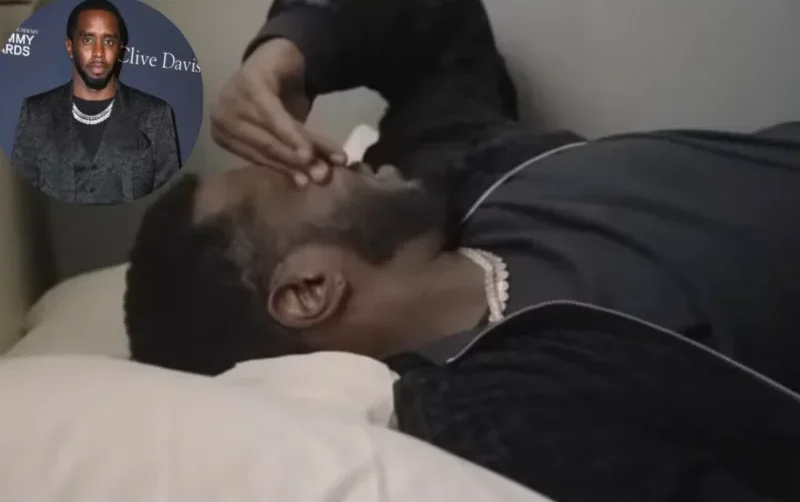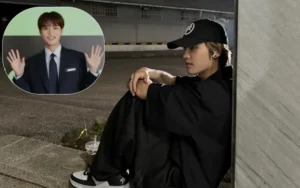Background on the Case
The legal troubles faced by Sean Combs, popularly known as Diddy, have captured significant media attention in recent months. The current case has its roots in a series of events that unfolded in 2023, raising serious allegations against the music mogul. The primary charge revolved around accusations of assault and threats, which led to the involvement of law enforcement and subsequent legal action. Combs was arrested following an incident that left a victim in significant distress, prompting an immediate investigation by the authorities.
The timeline of events began in early February 2023 when the alleged altercation occurred. Law enforcement authorities responded quickly, leading to Diddy’s arrest shortly afterward. Subsequently, he was formally charged with multiple offenses, including potential felony assault, which necessitated a robust defense preparation. This case has not only attracted the public’s scrutiny due to Combs’ celebrity status but has also prompted conversations about his personal and professional life, especially considering previous allegations that have surfaced over the years. Notably, this is not the first time Diddy has found himself entangled in legal disputes; his history includes various civil lawsuits and earlier criminal allegations, albeit none that reached the severity of the current situation.
In the context of these events, the judge’s recent decision to deny Diddy’s request for pretrial release has amplified discussions regarding the case. Legal experts have speculated on the implications of this ruling and what it may mean for the defense strategy. Factors such as flight risk and the potential impact on the community undoubtedly contributed to the judge’s determination. As the case unfolds, the implications of Diddy’s situation continue to resonate, underscoring the broader themes of accountability and justice within the realm of celebrity culture.
Details of the Request for Pretrial Release
Diddy’s legal team submitted a formal request for pretrial release as part of the ongoing legal proceedings involving their client. This request highlighted several arguments intended to demonstrate that Diddy posed no flight risk or threat to the community. One of the central tenets of their rationale rested on Diddy’s established ties to the community, comprising longstanding business relationships, philanthropic commitments, and family connections in the area. By underscoring these elements, the defense aimed to portray Diddy as a responsible member of society, focused on his various commitments.
Additionally, the legal team proposed several conditions for his release that would address the court’s concerns. These conditions included regular check-ins with law enforcement, restrictions on travel outside of specified geographic boundaries, and the requirement to surrender any firearms. This demonstrated their willingness to take necessary precautions to reassure the court and mitigate potential risks that could influence public safety or the judicial process.
In considering such pretrial release requests, courts typically reference established legal precedents that reflect broader standards in criminal justice. Generally, the key factors include the severity of the alleged offenses, the defendant’s criminal history, potential for bail violations, and the apparent strength of the prosecution’s case. Diddy’s legal team cited cases where individuals charged with similar offenses were granted pretrial release, asserting that their client’s situation paralleled those instances. Such comparisons served to further bolster their claim for leniency in this particular legal context.
Ultimately, the intricate dynamics of Diddy’s request for pretrial release reveal the complexities surrounding legal representation and the criteria shaping judicial decisions in high-profile cases. The arguments made center around both personal responsibility and adherence to judicial expectations, making it a compelling topic within the larger narrative of the court proceedings.
The Judge’s Ruling and Its Implications
Recently, a judge made the impactful decision to deny Diddy’s request for pretrial release. This ruling marks a significant moment in the ongoing legal proceedings surrounding the high-profile figure, emphasizing the court’s consideration of various factors in reaching its conclusion. The judge’s determination was primarily influenced by the weight of the evidence presented, which raised serious concerns regarding the potential risks involved should Diddy be granted release.
Key reasons for the denial included testimonies from witnesses and the nature of the charges against him. The prosecution highlighted that the allegations involved serious offenses, suggesting a pattern of conduct that warranted stringent measures to ensure both public safety and the integrity of the forthcoming trial. Furthermore, the judge expressed concern about Diddy’s ability to comply with conditions of release, given his notoriety and the influence he holds. The rationale behind this cautious approach reflects a broader trend in the legal system to prioritize accountability and the public’s perception of justice.
The implications of this ruling extend beyond the legal arena, potentially impacting Diddy’s public image and his overall legal strategy. With the denial of pretrial release, the narrative surrounding his case may shift, leading to increased scrutiny and discussions in public forums and media platforms. This could present Diddy with additional challenges as he navigates the legal process, emphasizing the need for a robust defense strategy that addresses both the charges and the public discourse surrounding them. As such, the judge’s decision serves as a pivotal moment, intertwining legal, personal, and public aspects of an unfolding case that continues to capture significant attention.
Public and Media Reaction
The recent denial of Diddy’s request for pretrial release has elicited a wide range of reactions from the public and media. As news of the judge’s decision spread, social media platforms became a battleground for supporters and detractors alike. Fans of the renowned music mogul expressed their discontent, taking to platforms such as Twitter and Instagram to rally behind him. Many noted that Diddy, known for his contributions to the music industry, should be afforded the benefit of the doubt until proven guilty. Supporters argued that the presumption of innocence is a cornerstone of the legal system and that the judge’s ruling feels disproportionately punitive given the circumstances.
Conversely, there is a significant segment of the public that has voiced strong opposition to Diddy’s actions. Critics pointed out the seriousness of the allegations against him, emphasizing that high-profile individuals must be held accountable for their behavior. They argue that Diddy’s celebrity status should not shield him from the repercussions of his actions. Coverage from various media outlets has focused heavily on these divergent views, illustrating the complex nature of public opinion in such cases. Some reports highlighted the visceral nature of fandom, often seeing supporters dismiss the allegations despite ongoing investigations.
In addition to social media narratives, mainstream media has approached the situation with a more analytical lens. Commentary pieces have examined the implications of the judge’s ruling on public perception and the broader dynamics of celebrity culture. The case exemplifies how media portrayals can shape narratives, often swaying public opinion and ultimately influencing the judicial process. As the case progresses, it is evident that the reactions from both the public and the media will continue to evolve, raising critical questions about celebrity accountability and the justice system’s integrity.




